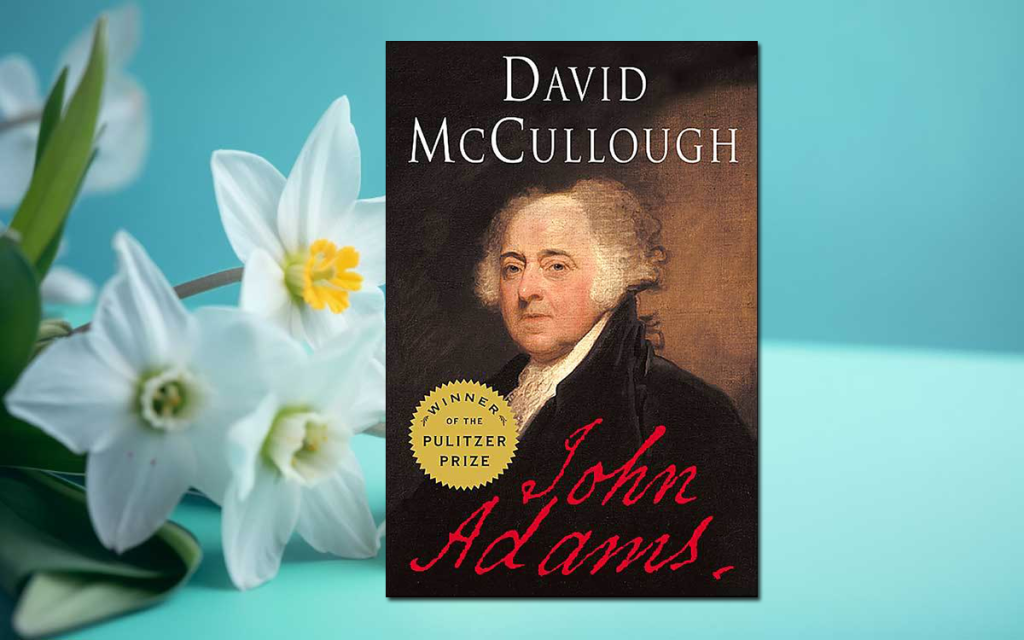
John Adams
John Adams: The Story of America’s Independence Giant
David McCullough’s enthralling and often surprising biography, “John Adams,” unveils the adventurous life of one of America’s most important and fascinating figures. Known as the “colossus of independence” by Thomas Jefferson, John Adams spared nothing in his zeal for the American Revolution, rising to become the second President of the United States and preventing the nation from blundering into an unnecessary war.
In this epic biography, McCullough paints a vivid portrait of Adams, a brilliant, fiercely independent, and often irascible Yankee patriot who was always honest. Adams was more learned than most of his contemporaries, some of whom regarded him as “out of his senses.” His marriage to the wise and valiant Abigail Adams stands as one of the most moving love stories in American history.
Much like his masterly, Pulitzer Prize-winning biography “Truman,” McCullough’s “John Adams” has the sweep and vitality of a great novel. It offers both a riveting portrait of an abundantly human man and a vivid evocation of his time, drawing heavily from an outstanding collection of Adams family letters and diaries. Particularly, the more than one thousand surviving letters between John and Abigail Adams, nearly half of which had never been published before, provide extraordinary insight into their private lives and allow readers to know John Adams as no other major American of his era.
McCullough tells the story from within, capturing the perspective of the eighteenth century and those who lived through the events with no certainty of their outcomes. Figures such as George Washington, Benjamin Franklin, John Jay, British spy Edward Bancroft, Madame Lafayette, Jefferson’s Paris interest Maria Cosway, Alexander Hamilton, James Madison, scandalmonger James Callender, Sally Hemings, John Marshall, Talleyrand, and Aaron Burr all appear in this panoramic chronicle, as does John Quincy Adams, the beloved son who Adams would see become President.
A crucial element of the story, as it was in history, is the relationship between Adams and Jefferson. Despite being born opposites—one a Massachusetts farmer’s son, the other a Virginia aristocrat and slaveholder; one short and stout, the other tall and spare—they shared a deep devotion to their country. Initially ardent co-revolutionaries and close friends, they became archrivals with the advent of political parties, even enemies during the intense presidential election of 1800. Yet, remarkably, they reconciled and became friends again, both passing away on July 4, 1826.
Many readers will be surprised by episodes of Adams’s life, such as his daring voyage on the frigate Boston in the winter of 1778 and his trek over the Pyrenees, exploits that few would dare and that remain unforgettable.
Adams’s life spans a vast arc, as he lived longer than any other president. The narrative ranges from the Boston Massacre to Philadelphia in 1776, from the Versailles of Louis XVI to Spain, Amsterdam, and the Court of St. James’s, where Adams was the first American to stand before King George III as a representative of the new nation. The story also covers his time in the raw, half-finished Capital by the Potomac, where he was the first President to occupy the White House.
“John Adams” is history on a grand scale—an exploration of politics, war, social issues, human nature, love, religious faith, virtue, ambition, friendship, betrayal, and the far-reaching consequences of noble ideas. Above all, it is an enthralling and often surprising story of one of the most important and fascinating Americans who ever lived.